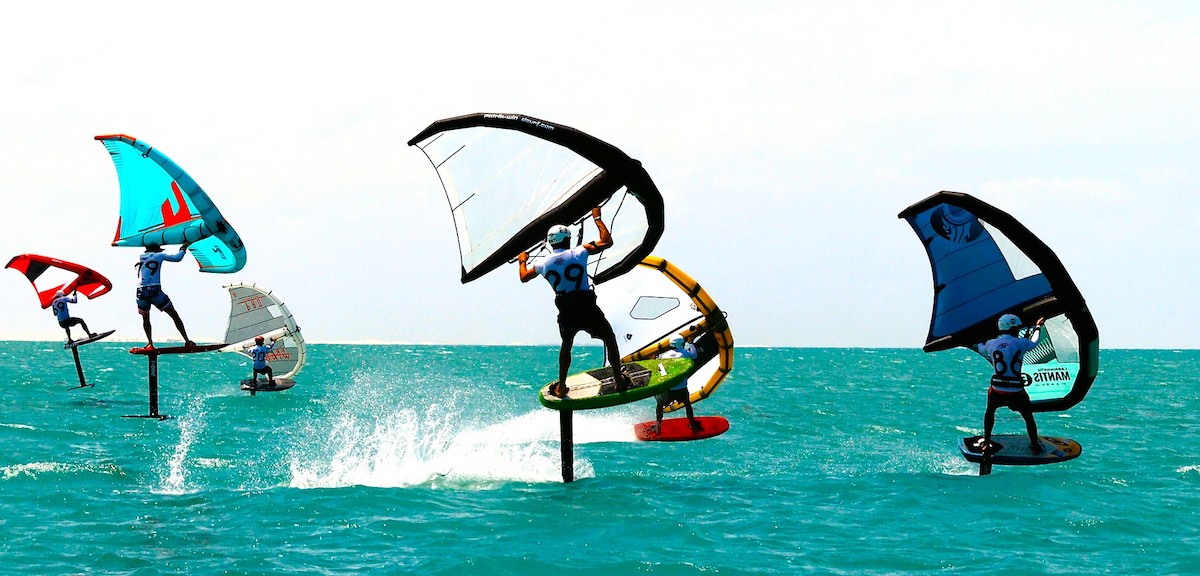THINKING OUT OF THE BOX
by Andy Rice
5 June 2024
Handicap racing may not be as pure as one-design racing. But, to mangle Sir Winston Churchill’s observation about democracy, perhaps handicap racing is the least worst form of competition available to us.
At first glance, the huge choice of different sailing dinghies in the UK seems like some kind of utopia - until you see how diluted each of those fleets has become. Organising decent fleets of one-design competition is achievable for probably only the top 10 most popular dinghy classes. The remainder are struggling for scraps
Typically we see more than 80 different classes competing in the Seldén Sailjuice Winter Series, the annual circuit which I have been running since 2009. The Series consists of eight handicap racing events from November through to the end of February, where pretty much every type of monohull dinghy is welcome to attend, along with as many types of sail-powered craft that each particular reservoir is prepared to accommodate. So we get a gaggle of small multihulls, sportsboats taking part too, and even a trio of iQFOiL foiling windsurfers at the Tiger Trophy this year.
Come one, come all, and let’s see who comes out on top. Thanks to the diligence of the Great Lakes Handicap Group, we use a variation of the standard RYA PY numbers to rate apples versus oranges versus bananas as closely as possible. And most would agree that the Great Lakes have done a great job at producing a fair set of numbers. From seeing so-called ‘bandit’ classes running away with all the chocolates a decade ago, now we often see 10 different classes in the top 10 overall of events, which for me is a sign of a well-functioning handicap system.
It’s all about experimenting with the format to find the outcome you’re looking for. In the case of the Seldén Sailjuice Winter Series, Simon and I are always seeing to maximise participation. In the case of Olympic sailing, the aims are different. And in my view, the need for change is well overdue.
At last summer’s Sailing World Championships in The Hague, the gathering of all 10 Olympic classes, six categories were contesting the Medal Series, the final-race shoot-out between the top 10 in each particular fleet.
Trouble was, in five out of six of those Medal Races the gold medal had been wrapped up before the final Medal Race. Even the sixth was all but a done deal. Is any more proof needed of a failed format? Occasionally there was some minor drama about who picked up the silver or bronze but from a media perspective the Medal Race showdown was a damp squib.
Media concerns in most forms of sailing don’t matter. A simple low-points scoring system works fine and does very well at rewarding the most deserving sailors with the top places.
But for keeping sailing in the Olympics, and that ever-present threat of being displaced by some other more deserving sport (threat real or imagined? Who knows...), then we have to come up with something more appealing to the media and the mostly sailing-agnostic global TV audience.
Fortunately the two new foiling disciplines - the iQFOiL windsurfers and Formula Kite kitefoilers have much more exciting final-day formats and delivered some great drama in The Hague, right to the very end.
I wanted to see if we could stretch the final-day format even further. One of the circuits that I work on the, Wingfoil Racing World Cup, has enough freedom to be able to tinker around with format changes without scaring the horses. So I proposed something that I nicknamed ‘Willy Wonka’s Golden Ticket’. Maybe we’ll get sued by the late Roald Dahl’s estate, though, so let’s just call it the ‘Golden Ticket’ for the time being.
We trialled it for the first time at the final event of 2023, in December in the beautiful oasis resort of Jericoacoara way in the north of Brazil. Here’s how it works...
You know that old saying that ‘you can’t win the championship on day one, but you can certainly lose it’? Race by race, day by day, the hopes and dreams of making it to the podium dwindle away for most of us while the cream rises inexorably to the top.
The problem with this, as I’ve seen many times at Olympic class events, is pretty much all but the top 10 have packed up their boats and driven or flown out of the venue well before the prizegiving. People have mentally and physically checked out of the event.
With the Golden Ticket, however, on the final morning we staged one big race for all but the top nine in the overall standings. All the competitors from 10th down to last place flew out of a fast-moving rabbit start and competed in a long-distance race. Whoever crossed the line in first place would grab that coveted 10th spot in the 10-board final.
And so Venezuelan rider Jose Estredo Perez, aka Golito, who had started the day in 14th place, fought his way to the finish in first place, booking his way into the knockout rounds. His run of good form in the strong Brazilian breeze continued and Golito ended up grabbing the bronze medal.
It was a phenomenal way for the Venezuelan to complete his regatta, albeit some of the more consistent performers across the week were not so chuffed to be overtaken on the final day. So is the Golden Ticket the magic bullet, so to speak? Too early to say, really. But there’s no doubt it keeps everyone engaged and in the hunt right up to the very end.

